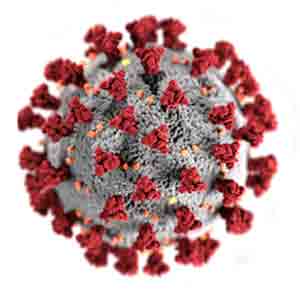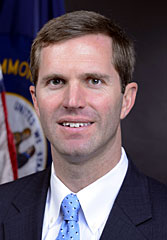Friday update: Lincoln Trail reports Nelson County has 2 new COVID-19 cases
NC GAZETTE / WBRT RADIO
STAFF REPORT
Friday, April 24, 2020 — Nelson County has two new COVID-19 cases that were reported Friday by the Lincoln Trail District Health Department.
The two cases bring Nelson County’s total to 18.
Additional cases were also reported in Hardin, Meade and Washington counties, with each adding one new COVID-19 case to their individual totals.

As of press time, there was a total of 79 cases of COVID-19 in the Lincoln Trail District.
The total number of cases per county is as follows:
- Hardin 32
- LaRue 5
- Marion 13
- Meade 6
- Nelson 18
- Washington 5
Currently, 74 cases are on home isolation or have been released from monitoring.
BENCHMARKS FOR EASING RESTRICTIONS. Gov. Andy Beshear has announced the benchmarks the state must achieve in order to ease the restrictions that will reopen the economy while still keeping Kentuckians safe.

These steps incorporate White House guidelines and advice from public health experts.
The seven benchmarks include:
- Data that demonstrates a fourteen consecutive day decline in the number and rate of new cases. Kentucky is not on a decline currently. According to the Governor, “we cannot go down, until we stop going up.” Fourteen consecutive days may not be as simple as it seems. The beginning of the fourteen days does not hinge on a set date but will be decided by the data.
- Increased testing capacity and contact tracing that would allow even those who do not have symptoms to be tested. In the Lincoln Trail area, the decision to test individuals is based on a two-tiered system. Tier One includes: Individuals with active symptoms (fever and cough, and/or difficulty breathing) who are healthcare workers, first responders, people over 60 years of age, or those currently living in a congregate setting such as a nursing home or jail. Tier Two includes those with active symptoms who have chronic medical conditions (e.g. asthma, diabetes, COPD, liver or kidney failure or a compromised immune system).
However, steps are being taken to open testing to a wider population across Kentucky.
Recently, Governor Beshear announced that Kroger testing sites in Louisville and Lexington will be open to everyone. These locations were chosen to target the African American population who suffer higher fatality rates than the general public. The sites will operate from Monday – Friday, starting April 27th and will run for two weeks.
- Personal protective equipment (PPE) availability. PPE continues to be in short supply across the healthcare system. There is still a great demand for gowns, gloves, face masks, and face shields. Individual service providers will be required to acquire necessary PPE for staff and patients through their own supply chains.
- Ability to protect at-risk populations. Kentucky has a large population that is considered high risk because we are not healthy overall as a state. We lead the nation in lung cancer, obesity, heart disease, and diabetes. Many of these diseases have been defined by the CDC as conditions that put people at higher risk for COVID-19. It is imperative that those at higher risk continue to practice physical distancing and healthy at home measures until a treatment and/or cure has been established for COVID-19.
- Ability to social distance and follow CDC guidelines on large gatherings. It is important to remember that many people do not exhibit symptoms with COVID-19. This makes physical distancing especially important. The virus is very contagious and is transmitted by coughing or sneezing respiratory droplets into the air. A single cough or sneeze can produce over 3,000 droplets. If you are within 6 feet those droplets can land in your eyes, nose, or mouth. We are not yet at a point to end physical distancing and go back to work, church, and concerts in our previous manner.
- Preparedness for a possible future spike in cases. In order to do this correctly, our number one concern must be safety. Returning to regular activities too soon could cause an increase in COVID-19 cases and overwhelm our healthcare system. We must ensure that we have the medical capacity to treat any future spikes in COVID-19 cases. Avoiding this second spike will restore our economy faster.
- Successful development of a vaccine and a treatment that can be used to combat COVID-19. Several companies are testing antiviral medications. These medications target the virus in people who are already infected. They are likely to be approved before a vaccine, which typically takes longer to develop. A vaccine must go through three phases of clinical studies. This pushes the date for widespread use to a year to 18 months. Finally, the FDA has created a process for an experimental treatment using blood plasma from patients who have recovered from COVID-19. The theory is that plasma contains antibodies that will battle this virus.
-30-






